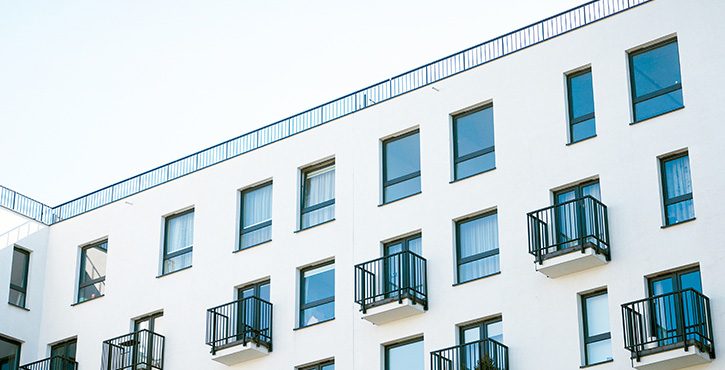Reduce your electricity consumption with a heat pump
Most homes in Quebec use an electric system for heating and cooling purposes. Even though this does not directly release CO2 or fine particles into the atmosphere like a wood boiler or wood heating does, there is a significant loss of energy associated with electric heating. That’s because there is an environmental cost to building baseboards. But the real problem lies in the energy loss that occurs between the production phase and when the electricity is used.
Unlike traditional electric heating, a heat pump can lead to substantial energy savings. It’s a device that uses the heat from the air outside to warm the inside of a home and is much more efficient and less polluting than traditional heating. Think of it this way: the air outside is a free renewable source of energy which means a heat pump will help you save on electricity.
Heat pumps: greater efficiency at a lower cost
A heat pump can be used to heat your home in the winter and cool it in the summer. It’s a 2-in-1 technology that really simplifies your life. You can even say it’s an eco-friendly, cost-efficient way of reducing your electricity consumption when compared to traditional heating. Here are some of the advantages of using a heat pump:
- It has a lifespan of about 12 years
- It has a high energy efficiency with a Coefficient of Performance (COP) of 3.0
- It requires less energy than electric heating because it mainly uses heat from the air outside which is renewable
- The units don’t make a lot of noise
- It pulses air throughout the room, unlike heat from an electric system which tends to stick to walls and rise to the ceiling
Even more good news: in addition to be an eco-friendly, cost-efficient choice, a heat pump is as powerful as your current heating system.
A Coefficient of Performance (COP) is used when comparing the efficiency of heating systems. For instance, an electric baseboard has a COP of 1.0 because the energy used is entirely employed to produce heat. As for a heat pump, it can attain and even exceed a COP of 3.0. This means that it uses the same amount of energy as an electric baseboard but can produce three times more heat.
Heat pumps have a better energy output
What makes a heat pump so efficient is that it produces more energy than it requires. In fact, as per the Canada Mortgage and Housing Corporation (CMHC), a heat pump produces between 3 and 10 kWh for each kWh consumed. It therefore has a “net positive” energy effect over the course of a year.
Technology allows the heat pump to generate more energy than it consumes which in turn will save you hundreds of dollars in heating costs every year. Furthermore, it’s a system that’s more environmentally friendly than traditional electric heating.
Heat pumps are less costly than traditional heating and AC systems
Better energy efficiency means lower costs. Not only do you save hundreds of dollars on your electricity bill every year, you can also take advantage of government rebates to help with the costs of purchasing a heat pump.
Even though purchasing and installing a heat pump requires a bit of investment, your wallet will thank you in the long run because you could lower your heating bills by up to 30%. And if you install a heat pump, you could be eligible for financial assistance from Rénoclimat which allows you to take advantage of a preferential rate from Hydro-Québec with certain conditions.
Find out how to save even more by reading our article on financial programs available for purchasing heat pumps.
Doing your part for the environment
Choosing to install a heat pump in your home means using less electricity and making an environmentally conscious choice. In the winter, a heat pump absorbs the heat from the outside air and compresses it to increase the temperature indoors. A ventilator then pulses the air inside to distribute it in the rooms you want to heat.
Absorbing heat from the air outside air in the winter seems impossible? As per Natural Resources Canada, the earth and air outside always contain a bit of heat, even in the winter. A heat pump is designed to capture this heat in temperatures as low as -15°C.
The process is reversed in the summer. The heat pump captures the cold in the outside air and distributes it inside using the ventilator. In this instance, the device acts as an air conditioner.
A heat pump is therefore an excellent way of reducing emissions from thermal power stations that produce the electricity consumed by baseboards or other types of electric heating systems.
Heat pumps use renewable energy
As mentioned above, a heat pump uses the heat from the air to cool or heat a home. This source of energy is renewable and free, making a heat pump an excellent alternative to traditional heating systems. In fact, heat pumps reduce the use of energy produced by non-renewable sources that are necessary to power an electric system.
The more renewable energy sources you use, the lower your carbon footprint and the greater the impact on the planet. Actively helping to slow down climate change is possible, and it can start with installing a heat pump in your home.
Using a heat pump to reduce your carbon emissions
Your direct and indirect emissions of C02 and fine particles will be drastically cut when you use a heat pump as an alternative to conventional heating systems. These particles are normally released into the atmosphere by thermal power stations that produce electricity. That’s what makes a heat pump a simple, efficient way to reduce your carbon emissions.
In sum, a heat pump is an ideal alternative for anyone looking to go green with a heating and cooling system that will lower their energy consumption.
For more information about our various heat pump models available for purchase or lease, visit our website and find out how you could enjoy year-round comfort!




